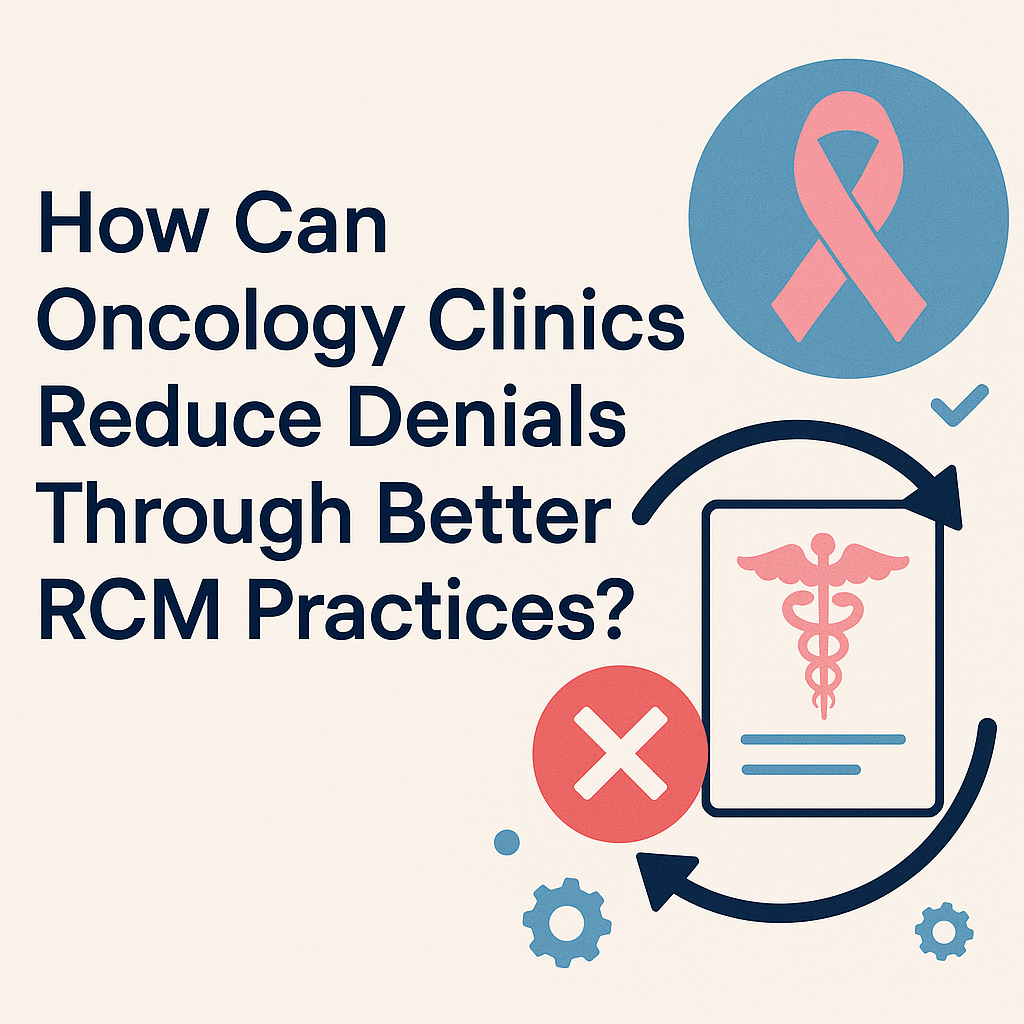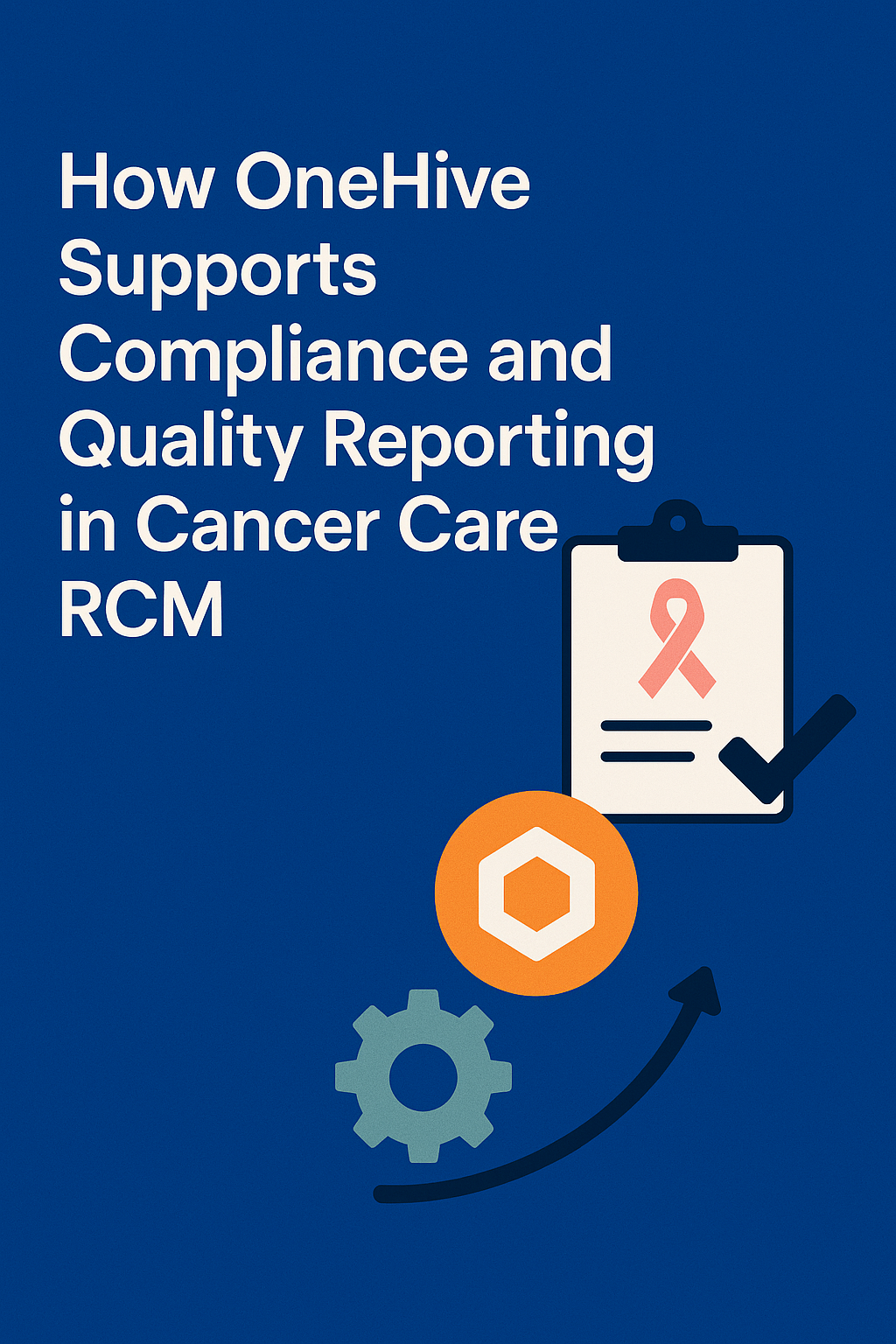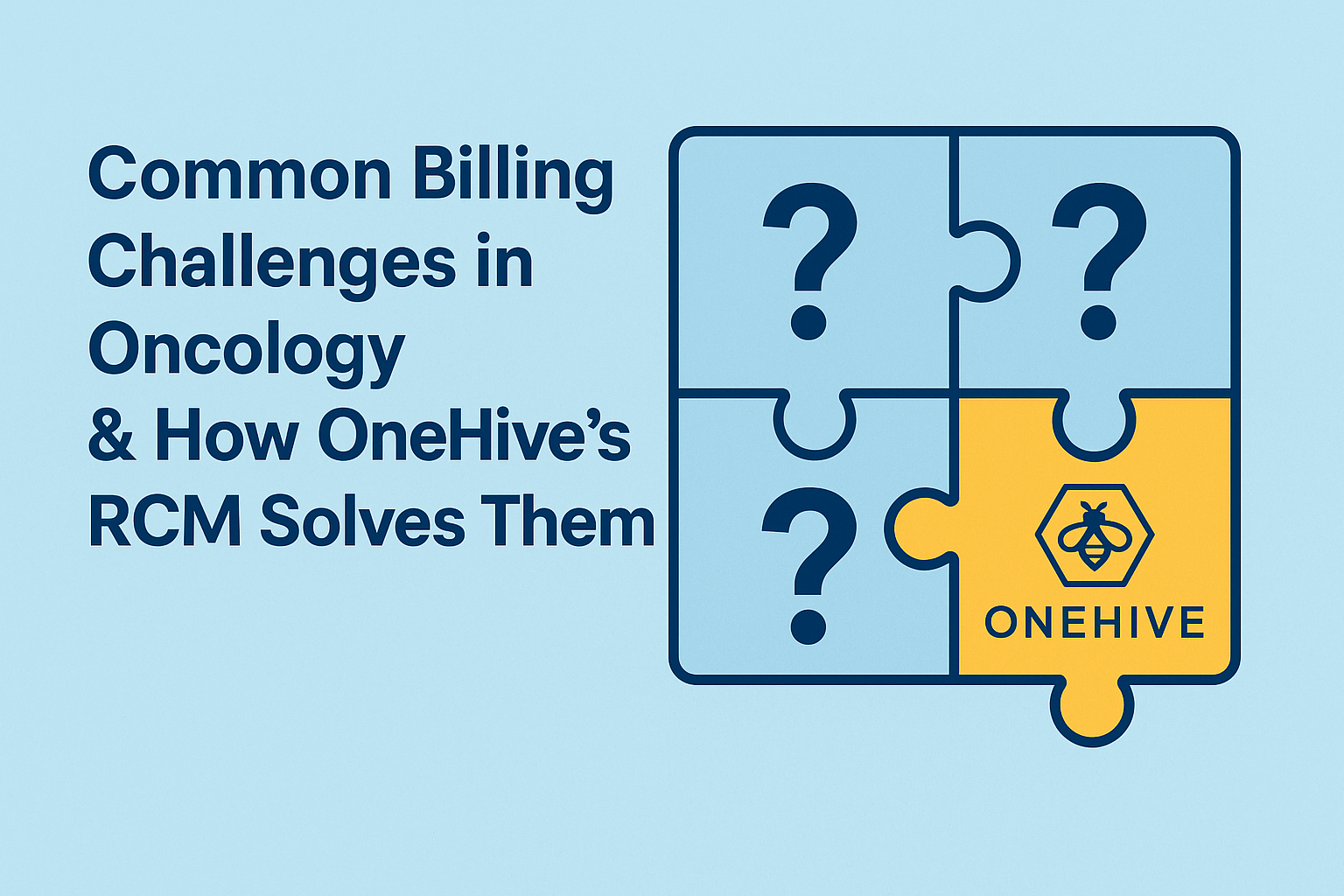Oncology clinics deal with high patient volumes, complex treatments, and ever-evolving insurance requirements. The result? A perfect storm for insurance claim denials. That’s where better Revenue Cycle Management (RCM) comes into play. Think of RCM as the financial heartbeat of your practice—it keeps your operations alive and thriving by ensuring every service you provide turns into proper revenue.
Let’s dive into how better RCM strategies can slash denials and boost your clinic’s financial health.
Understanding Denials in Oncology Clinics
Common Types of Denials
Some of the most frequent reasons oncology clinics face denials include:
- Missing patient information
- Incorrect or outdated codes
- Services not covered by the insurer
- Lack of prior authorization
- Filing claims past deadlines
Financial and Operational Consequences
Every denied claim isn’t just a delay—it’s a potential loss. The time, labor, and administrative costs to rework claims or appeal them stack up fast. Too many denials can choke your cash flow and put the entire practice under stress.
Why Oncology Is High-Stakes for Billing
Cancer treatments are not only expensive—they’re time-sensitive and heavily regulated. Mistakes in billing can mean denied payments for chemotherapy, radiation therapy, or diagnostic testing. These aren’t just numbers; these are life-saving procedures on the line.
What is Revenue Cycle Management (RCM)?
Overview of RCM in Healthcare
RCM covers everything from scheduling and patient registration to coding, billing, and follow-ups on denied claims. It’s a full-cycle process ensuring your clinic gets paid for the services provided.
RCM Tailored for Oncology
Cancer clinics face a distinct set of billing and coding rules. For example, different regimens may require multiple authorizations and CPT codes that vary slightly with dosage and body part. A generic RCM setup simply won’t cut it.
Why Specialized RCM Matters for Cancer Care
Oncology-specific RCM systems are designed to:
- Handle complex chemotherapy billing
- Monitor infusion timings
- Manage authorizations for specialty drugs
- Track patient assistance programs
Key Reasons for Claim Denials in Oncology
Incomplete Documentation
If your notes don’t justify the treatment, insurers have the perfect excuse to deny payment. Period.
Incorrect Coding
With constant updates in ICD-10 and CPT codes, coding errors are inevitable—unless your team is constantly trained.
Missed Prior Authorizations
Most oncology treatments require pre-approval. Missing these means you’re doing the work for free.
Insurance Eligibility Errors
Patients may forget to update their insurance details, or staff might fail to verify coverage. That’s a red flag for denials.
Timely Filing Issues
Even if everything’s accurate, missing deadlines is a death sentence for claims.
Strategies to Improve RCM and Reduce Denials
1. Invest in Oncology-Specific RCM Software
Look for systems that integrate EHR, real-time authorization, eligibility checks, and coding tools. The fewer manual steps, the better.
2. Enhance Staff Training and Accountability
Provide monthly billing workshops and create a culture of ownership. If someone submits a faulty claim, review it as a learning opportunity—not a punishment.
3. Implement Real-Time Eligibility Verification
Many denials stem from coverage lapses. Use real-time tools to catch these issues before the patient walks in.
4. Prior Authorization Workflow Optimization
Automate your reminders, track all approval stages, and assign one person to oversee it all. Think of it like air traffic control for treatment approvals.
5. Documentation Improvement Programs
Doctors are busy. Make it easy for them with templates, voice-to-text tools, and periodic training on what payers expect to see in notes.
6. Leverage Data Analytics
Identify Patterns in Denials
If you see that most denials are coming from one payer or treatment, it’s time to dig deeper.
Predict Future Risks
Machine learning tools can flag claims likely to be denied—before submission.
Create Performance Dashboards
Visual dashboards help spot issues fast and keep the entire team informed.
7. Use Denial Management Tools
Track every denial. Set alerts for common errors. Automate appeals where possible. Let the system handle the grunt work while your team focuses on patients.
The Role of Collaboration in Denial Reduction
Billing and Clinical Teams Working Together
When billing staff understands treatments, and clinicians know how billing works, magic happens.
Communication with Payers
Build relationships with insurer reps. Know who to call when things go south.
Patient Engagement and Education
Help patients understand their insurance and potential costs to avoid billing confusion later.
Outsourcing RCM: Is It Worth It?
Pros and Cons
Pros: Expertise, scalability, 24/7 claim monitoring
Cons: Less control, higher cost, data sharing risks
When to Consider Outsourcing
If your denial rate is over 10%, and you don’t have the resources to overhaul internal systems, it might be time to outsource.
Choosing the Right Partner
Look for oncology experience, HIPAA compliance, and transparent reporting.
Measuring Success in RCM Improvements
Key Performance Indicators (KPIs) to Track
- Denial rate
- Days in A/R (Accounts Receivable)
- First-pass claim resolution rate
- Net collection rate
Establishing Benchmarks
Compare your numbers to national oncology benchmarks or peers in your region.
Continuous Improvement Cycles
Set quarterly reviews. Adjust strategies. Repeat. RCM isn’t “set it and forget it.”
Conclusion
Oncology clinics can’t afford to let denials eat into their revenue or disrupt patient care. With smarter RCM practices—like better tech, focused training, real-time checks, and collaborative workflows—you can turn those rejections into reimbursements. Remember, every denied claim is a story. Start rewriting those stories into successes.




